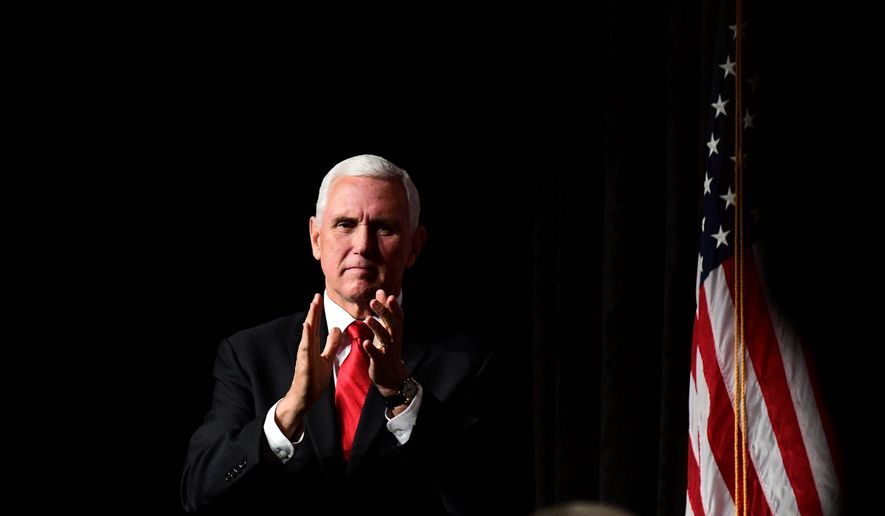Vice President Mike Pence is not backing down from criticism that his office improperly funneled federal aid to several Christian groups, particularly those in the religiously diverse Nineveh Plains of Iraq, saying it’s part of the Trump administration’s “vision” for helping victims of Islamic State genocide.
“The vice president is proud of the work the Trump administration and members of his team have done to assist victims of genocide in Iraq,” a spokesperson for Mr. Pence said.
ProPublica reported Wednesday that Mr. Pence and his aides over the last two years have intervened in decisions by the U.S. Agency for International Development (USAID) to award aid funds to Christian groups in the largely Muslim nation.
ProPublica reported that USAID Administrator Mark Green removed a longtime civil servant from the Middle East bureau, acting on a request from an aide to Mr. Pence, who was angered that Christian groups weren’t included in the grant cycle.
A Pence aide called this “one-sided reporting,” adding in an email that “it should come as no surprise that this administration is committed to actually doing what the president has promised — to provide aid in the most direct and effective way possible to those suffering — and we have been appropriately focused on doing so.”
President Trump last year signed the Iraq and Syria Genocide Relief and Accountability Act, which directs State Department and USAID funds to victims of Islamic State, especially religious minorities.
Last month, USAID announced it would award $4 million to six “local groups in Northern Iraq,” including Catholic University in Erbil and the Shlama Foundation, a small charity whose work largely assists Chaldean Christians.
Catholic University in Erbil will receive $700,000 for programs aiding “widows, victims of abuse, and former captives of ISIS.” The Shlama Foundation was awarded $1 million over two years for a solar energy project.
These were the first awards under USAID’s New Partnerships Initiative, undertaken by Mr. Green earlier this year, with the aim to “expand and diversify USAID’s partner base.”
Both awards came under scrutiny over allegations of favoritism from Mr. Pence’s liaisons at USAID.
USAID must be “free from political interference or even the appearance of such interference,” according to the agency’s rules.
A USAID spokesperson said the focus on groups in northern Iraq followed “all laws and applicable Federal regulations” and was first implemented by Secretary of State John Kerry in 2016.
“Assistance to religious and ethnic communities targeted by ISIS is not a departure from the norm, but rather a continuation of the rich history” of USAID, the spokesperson said.
Over the last two years, the U.S. has provided $400 million in aid to areas populated by religious and ethnic minorities and more than $1.5 billion in aid to Iraq, populated mostly by Sunni and Shia Muslims.
In op-ed last year in The Wall Street Journal, former Reagan administration National Security Adviser Robert McFarlane and New Jersey Rep. Chris Smith noted that roughly 90% of Iraqi Christians — who numbered 1.3 million in 2003 — are gone. A 2018 report by Fox News also criticized USAID for not more fully supporting Iraqi Christians.
The 2018 CIA Factbook says at least 95% of Iraq is Muslim, an increase after the flight of Christians and Yazidi refugees with the rise of ISIS.
• Christopher Vondracek can be reached at cvondracek@washingtontimes.com.




Please read our comment policy before commenting.